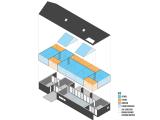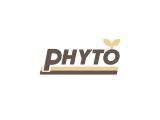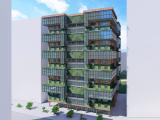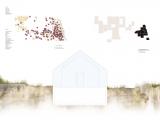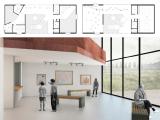DSGN 410 / Fall 2020
PROJECT DESCRIPTION:
Phyto provides a minimally invasive long-term solution to the city of Omaha, Nebraska’s lead pollution problem. Omaha is home to the largest residential EPA Superfund site in the country, due to the pollution created by multiple lead smelting and manufacturing plants that left behind over 100 years worth of lead contamination across Omaha, which disproportionately and severely affect the health and wellbeing of vulnerable populations today.
Phytoremediation, from which the name Phyto is obtained, refers to the use of plants to remove pollutants in soil or groundwater. This site would be the headquarters for a network of phytoremediative test plots. It is an opportunity for research on these processes to be done on a large scale, while simultaneously remedying the destructive effects on Omaha lead continues to cause. The expanse of contaminated land in Omaha would enable this to extend outwards as needed, and has the potential to develop in other regions.
The architecture on our site is research focused with an emphasis on public interface, including lab spaces and research areas, a gallery space to display discoveries, along with an auditorium space to present work to the local residents. The landscape functions as both research into different methods of phytoremediation and an educational tool for the public.
Redlining confined vulnerable populations to our site due to its proximity to the lead smelting plants. The disrepair and neglect carried out by the City of Omaha has had lasting and severe effects which can still be seen today in the many unremediated plots of land and the affected health and wellbeing of residents.
STUDIO DESCRIPTION:
POST- STUDIO is a multidisciplinary collaborative studio between architecture and landscape architecture students exploring the relationship between land, justice, climate change, and policy. Post-Carbon, Post-Oil, Post-Spatial Disparity, Post-Anthropocene, Post- <insertproblematique>. The notion of "Post-" implies a future state. In this studio, students are asked to speculate on the future of ongoing current issues that are impacting our communities. One of the most significant national conversations surrounding these concerns is the Green New Deal (GND), which considers the state as an activist force to consider issues of global warming, economic inequalities, and systemic racism/sexism.
The GND is a reference to the New Deal (1933-1939), which was a “series of programs, public work projects, financial reforms, and regulations enacted by President Franklin D. Roosevelt in the United States responding to needs for relief, reform, and recovery from the Great Depression.” POST- Studio is a participant in the Landscape Architecture Foundation (LAF) sponsored Green New Deal Superstudio, where academic design studios across the country explored critical themes outlined by the recent Green New Deal climate proposal.
Within this framework, the studio asks, what does it mean to be a design activist? And what is the relationship of architecture and land, and how do we, as stewards of the environment, critically respond to ongoing and contentious political discourse? Geographically, this studio focuses on historically redlined areas of Omaha. Through research and designing, students sought to explore the implications of a variety of salient issues considered as part of the Green New Deal, including lead contamination, food access, job training, and community resilience.
Follow the College of Architecture


